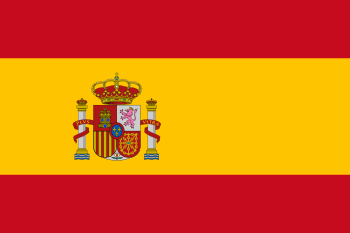
AFTER SAYING goodbye to the Rev Humphreys and his charming wife, Edith, the committee moved fast and Mr Osbert Ward, who was elected Librarian at the formation of the Orotava Library, duly became the new President. He took the seat at the 1908 AGM.
Osbert and his wife, Eleanor, had settled in the Orotava Valley at the turn of the century after first spending a few winters at the Hotel Taoro. The Valley had won its battle with Guimar for the health visitors and Osbert was so delighted and excited with his new life that he wrote a guide book called The Vale of Orotava which was published by Russell and Co., Paternoster Row, London in 1903. As this was the year that the Library was built, Osbert was up to date with his information. Here’s what he has to say about the terms of subscription:
The subscriptions are £1.1s per year, with two volumes twice a week; 10s 6d for three months, 5s for a month and 3s for a fortnight. Books can be taken out for a month at a time, but must be re-entered at the end of a fortnight.
The Library is opened twice a week: on Monday mornings 10am till 12am and on Thursday afternoons at 3pm to 5pm. In the summer it is open on the same days but always at 4.30pm to 6pm on account of the heat. There is a fine of 6d for each book not returned or re-entered at the end of a fortnight, and an additional 6d for each opening of the library that the book is not returned to us.
Very interesting once you’ve worked yourself through the maze and for those of you adept at mental arithmetic, £1.1.0 (one guinea) in 1903 has a buying power of £100.70 today.
In the preface Osbert declares that his love of Orotava leads him, whenever possible, to do his best for the place, to endeavour to get it as much known as it deserves, and in every way to further its interests.
There’s not much more that we know about Osbert except that from an early age he was a man of independent means. He married Eleanor Louise MacFarlane Vaughan when she was 20 and he 24. Eleanor was also from a wealthy family, being the granddaughter of ironmaster, John ‘Jacky’ Vaughan, of Gunnergate Hall, Middlesbrough.
No money troubles there then!
Osbert must have seemed quite eccentric to the locals with his homburg hat and his long overcoat; even more so when he brought over his car which they called “the flying bed”.
Here he stands at the christening of one of our Library members who wishes to remain anonymous. The year is 1938. Osbert was 82.
Eleanor died in 1933, aged 73. Osbert had a great innings for a sick man, dying in 1949 at the age of 93. They are both buried in the Protestant Graveyard, “La Chercha”.
Now, let’s see what happened at the Library under Osbert’s watchful eye.
New Committees bring new ideas and at the first meeting after the AGM it was proposed that the reading room be used for entertainments. This was passed unanimously and an Entertainments Committee was appointed. A piano was purchased for £10 and a stage was quickly erected. On the 4th February 1909 the first Dance was held and 67 tickets were sold at 4ptas each. The Committee had taken the precaution of declaring that ‘in the event of organising a dance, the names of all persons applying for tickets should be submitted to the Sub Committee for approval’. Would this be to keep out the locals or could it be the Germans as, by now, the Grand English Hotel was known as the Humboldt Grand Hotel? Probably there was a persona non grata or two in their own ranks.
This first entertainment made a profit of 66.20 ptas and was followed quickly by a dance on February23 and another on March 6. The entertainments then came to a sudden end for the financial year, although they were proclaimed a success at the AGM.
It was not only the entertainments that were carefully guarded. The minute book records that Mr Walter N. Reid was appointed book censor in the place of Dr Lishman, who had left the island. One can’t help but smile at the thought of the worthy doctor striding up the gangplank with a case full of books that he’d banned. When Walter Reid resigned from this challenging post in 1911 the position was discontinued.
At the AGM, held rather later than usual on December 17, 1909, Osbert reported that the committee was facing the fact that income had diminished year by year and they had concluded that an effort should be made to raise additional funds; hence the entertainments.
The Reading Room was losing money because subscribers were so few and in view of the poor prospects for the coming season the committee had decided to close it down. The Treasurer’s report was equally depressing and members were left in no doubt that it was going to be a tough year ahead. All 13 of them present!
Osbert and his committee had battled hard to keep the Library running. At their first meeting in January 1910 a new Librarian had to be appointed and, according to recent custom, it was the new incumbent at the church, the Rev C.C. Wilson.
At the second meeting a month later, the Secretary, Mr John Hunter, ‘drew the attention of the committee to the fact that matters of a personal nature which were discussed at the previous meeting had been divulged to interested parties, and stated that some inconvenience and friction had been caused by the failure to observe the usual rule of secrecy binding upon members of committees’.
There was at least one red face at this meeting.
As the story of the Library unfolds, it becomes apparent that history is not just about dates and places. History is about people and how they act and react in the spaces between the dates. We are writing their story.
When Mrs Boreham became aware of the Library’s plight, she immediately donated £10 to the funds.
This generous act seemed to bring about a change of fortune.
The season was turning out better than first thought and membership had increased. The committee decided to spend some of the money to enclose the Library by building a wall, including an entrance gate. Mrs Wethered had agreed that the wall could be built on El Robado land. It is to be assumed that we are referring to the wall and gateway that exist today. The consequence of building the wall on the El Robado land was that the Library had more space to create its wonderful garden. Another generous act from a generous lady.
In 1912 when the Bishop of Sierra Leone, John Walmsley, visited Tenerife (part of his diocese), he wrote: I am staying with Mrs Wethered, the widow of a man who practically discovered this place. She is a beautiful old lady, who, with another old lady, Mrs Boreham, is the mainstay of the church here. I haven’t seen much of other people yet. They have a wonderful library here of some thousands of books, especially theology and science and travel. From the way in which books were being taken out yesterday, there must be one place left where they do solid reading.
Mrs Boreham (Mary Dabney) died in 1917 and is buried with her husband in La Chercha. Mrs Wethered (Frances Alice Ellison) died in England in 1918.
Osbert Ward’s tenure of the Presidency had been a success. His two years had seen innovations without losing the committee’s firm control.
The Library has a copy of his little book but it is too valuable to be placed on the shelves. Members wishing to read this can do so in sitio by arrangement with one of the officers.
In the next article we shall read about the Presidency of John Hunter, of whom little is known, but his committee and volunteers would fill a page or two in Debrett’s or Burke’s Peerage. And I’ll say it again – it’s the people who make history interesting.

 Please see
Please see